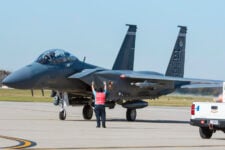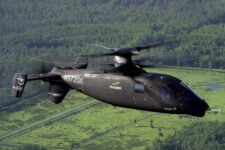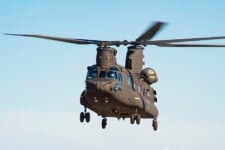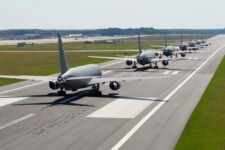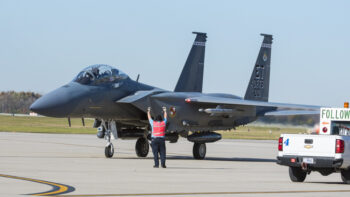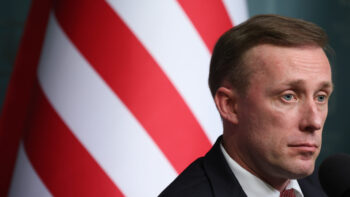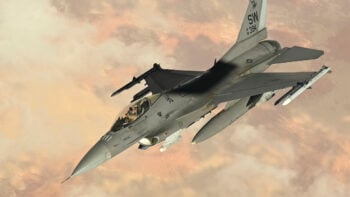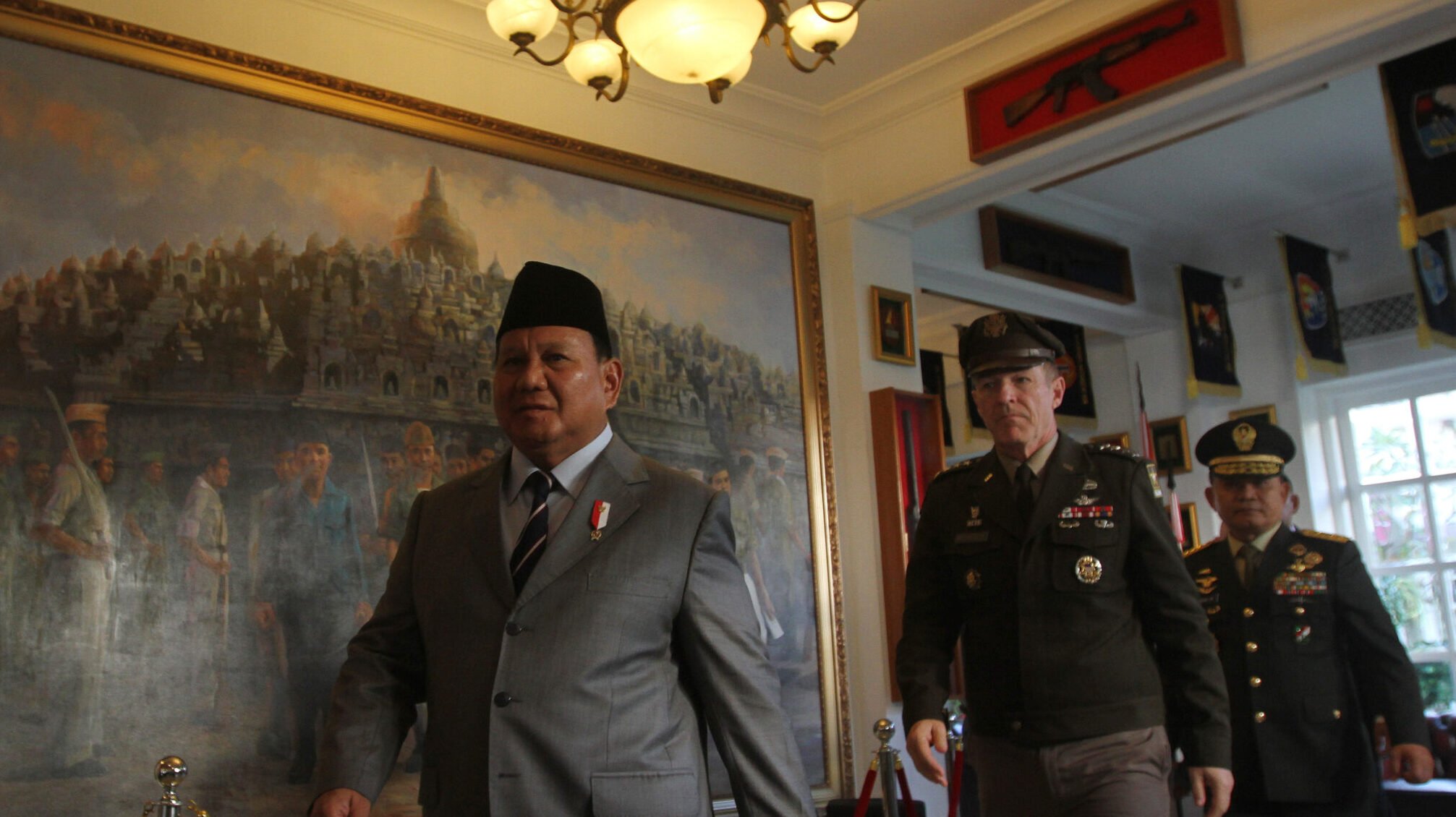
Then-Chief of Staff of the US Army, General James Charles McConville (C) accompanied by then-Indonesian Defense Minister, Prabowo Subianto (Front) arrives at the Indonesian Ministry of Defense offices in Jakarta, Indonesia, 12 May 2023. (Photo by Eko Siswono Toyudho/Anadolu Agency via Getty Images)
SYDNEY — Indonesia’s likely next president is unlikely at least at the outset to make major shifts in his country’s relations with China, but he is “much more comfortable with the United States as a security partner,” according to a top Indonesia analyst.
Prabowo Subianto, who has been marked the likely winner of the world’s third largest democracy’s vote with an estimated two-thirds of the country’s electorate supporting him, will have to diversify the country’s investments. And that almost certainly means more money from the People’s Republic of China.
“China is one of those sources, but he does seem to be much more comfortable with the United States as a security partner. So there will always be that balancing act,” said Natalie Sambhi, an Australian expert on Indonesia’s national security. And Prabowo may exhibit a more muscular version of Inonesia’s famed non-aligned policies.
“We know that he’s got a volatile personality and, coupled with this [populist] rhetoric, and then coupled with his desire to be seen, and to appear strong, we might see some adjustments as time goes by,” she told Breaking Defense.
Andreyka Natalegawa, an analyst with the Center for Strategic and International Studies in Washington, agreed that Indonesia’s foreign policy under Prabowo “will likely see more continuity than change,” though he, too, wrote that the incoming president may assert himself on a “broader set of priorities,” including foreign policy and defense.
Beijing and Jakarta generally have fewer flashpoints of tension, Samdhi said, compared to China’s relationship with neighbors like the Philippines or Vietnam.
“There’s a high level of respect [in Beijing] for the size and gravitas and it sees Indonesia as a leadership role in ASEAN [Association of Southeast Asian Nations],” said Sambhi, executive director of Verve Research, an independent research collective focused on security in Southeast Asia. “So looking at it from Beijing’s perspective, they would want to be keeping this really strong, pragmatic relationship. And from Indonesia’s perspective, it would also want no disruption to that steady stream of foreign investment and to build up of certain parts of transportation infrastructure, for instance.”
Given his background as defense minister and previous role as commander of Indonesia’s special operations forces, however, Samdhi said it’s still worth watching Prabowo to see how he reacts to any Chinese incursion in Indonesia’s Exclusive Economic Zone.
And Natalegawa wrote in his CSIS analysis that “Prabowo may place a higher priority on maritime security and the assertion of Indonesia’s rights in the South China Sea, including by supporting some efforts at coordination among Southeast Asian claimants.”
Natalegawa said that he expected Prabowo to be more assertive in Indonesia’s role in ASEAN as well.
“The organization has failed to make significant progress on key issues, including tensions in the South China Sea and the ongoing civil war in Myanmar,” Natalegawa wrote. “The fact that the [previous] administration has largely shied away from Indonesia’s traditional role as a leader in ASEAN has exacerbated the organization’s strategic drift. Prabowo thus has the opportunity to steer Indonesia toward a more forward leaning and active role in ASEAN and restore the institution’s relevance and centrality. But all this depends on whether he has the patience to work through ASEAN’s admittedly languid decision-making and institutional processes.”
Indonesia’s Defense Spending
So the strategic environment is likely to be stable with the new president, but what of its defense spending?
The list of weapons that Indonesia appears to have committed to buy includes several squadrons of French Rafale and 24 of Boeing’s F-15EX fighters. Prabowo as defense minister had already signed deals for two British Arrowhead 140 frigates to be built in Indonesia and six Italian FREMM multi-role frigates, as well as two refurbished Italian Navy Maestrale-class light frigates. A total of $125 billion in commitments was contained in a government document, “Fulfilling the Defence and Security Equipment Needs of the Ministry of Defence and Indonesian Armed Forces (TNI) 2020-24,” released in June 2021.
And the outgoing president, Joko Widodo, approved last November a 20 percent increase in defense spending through the end of this year, designed to help pay for some of those weapon systems. The defense budget is set to rise from $20.75 billion to $25 billion.
But Sambhi said “there have only been down payments made on certain contracts. And that was something that Sri Mulyani, the finance minister, put a stop to at the end of last year, leading up to the election.”
On top of all that uncertainty, there’s the fact that Indonesia has no known public or classified defense strategy to serve as a guide and justification for spending, Samdhi noted.
Also, there may be a serious competitor for government resources. The Indonesia capital, Jakarta, is sinking, and the government has committed to building a new capital on the island of Borneo. The $32 billion project received a $1 billion top-up in June last year, and there’s a push on to get much of the government leadership in place this year. Sambhi said it’s too early to tell how much the new capital and defense spending might clash.

